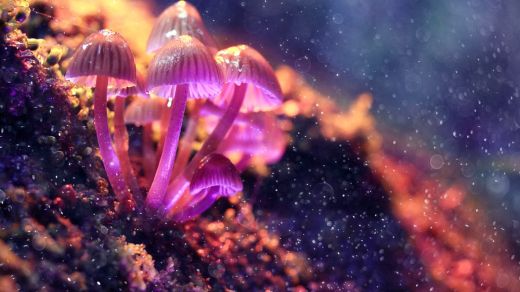Introduction
In the ever-evolving landscape of mental health treatment, a promising frontier has emerged with the exploration of psilocybin therapy. Psilocybin, the psychoactive compound found in certain mushrooms, is gaining recognition for its potential to revolutionize mental health care. This article delves into the transformative potential of psilocybin therapy, exploring its roots, mechanism of action, and its role in reshaping the future of mental health treatment.
The Origins of Psilocybin Therapy
Psilocybin has been used for centuries in various cultural and spiritual contexts. Indigenous communities have incorporated psychedelic mushrooms into their rituals, attributing profound spiritual and healing properties to these natural compounds. The contemporary interest in psilocybin therapy draws inspiration from these historical practices, seeking to integrate ancient wisdom with modern scientific understanding.
The Mechanism of Psilocybin
Serotonin Receptor Interaction
Psilocybin operates by interacting with the serotonin receptors in the brain, primarily the 5-HT2A receptor. This interaction induces altered states of consciousness, leading to an array of psychological effects. The serotonin system, known for its role in mood regulation, is a key player in the therapeutic potential of psilocybin.
Neural Connectivity and Plasticity
Research indicates that psilocybin may enhance neural connectivity and neuroplasticity. The compound’s ability to temporarily rewire neural pathways may underlie its reported efficacy in treating mental health conditions. Psilocybin therapy is not just a symptom suppressant but a catalyst for profound shifts in cognition and perception.
Psilocybin Therapy in Mental Health Treatment
Depression and Anxiety
A growing body of research suggests that psilocybin therapy holds promise in alleviating symptoms of depression and anxiety. Clinical trials have demonstrated significant and sustained reductions in depressive symptoms after a limited number of therapy sessions. The subjective experiences induced by psilocybin, often described as mystical or transcendental, contribute to a renewed sense of purpose and well-being.
Post-Traumatic Stress Disorder (PTSD)
For individuals grappling with PTSD, psilocybin therapy offers a novel approach. The therapy’s ability to bring repressed memories to the forefront, coupled with a supportive therapeutic environment, facilitates the processing and resolution of trauma. Early studies indicate that psilocybin therapy may represent a breakthrough in addressing the complexities of PTSD.
Addiction
Addressing addiction is another frontier where psilocybin therapy shows promise. Research suggests that psilocybin-assisted therapy can help individuals break free from the cycle of addiction by providing insights into the root causes and offering a fresh perspective on life. The mystical experiences induced by psilocybin may contribute to a profound shift in mindset crucial for overcoming addictive behaviors.
The Importance of a Controlled Setting
Guided Sessions and Experienced Facilitators
Central to the success of psilocybin therapy is the importance of a controlled setting. Guided sessions, facilitated by experienced therapists, ensure the safety and efficacy of the treatment. The therapeutic environment plays a pivotal role in guiding individuals through their psychedelic journey, maximizing the therapeutic benefits while minimizing potential risks.
Integration and Support
Post-session integration is a critical component of psilocybin therapy. Integrating the insights gained during the psychedelic experience into daily life requires ongoing support. Therapists work collaboratively with individuals to process and incorporate these insights, fostering lasting positive changes in mental health.
Legal and Ethical Considerations
While the therapeutic potential of psilocybin is promising, legal and ethical considerations surround its use. Current regulations vary globally, with some regions allowing controlled use in research settings. The evolving landscape of psychedelic research necessitates ongoing dialogue about the ethical implications and responsible implementation of psilocybin therapy.
The Future of Mental Health Treatment
As research on psilocybin therapy advances, it holds the potential to reshape the landscape of mental health treatment. The integration of psychedelics into mainstream therapeutic approaches marks a paradigm shift in understanding the mind and its capacity for healing. Psilocybin therapy stands at the forefront, offering a glimpse into a future where mental health care is more holistic, transformative, and personalized.
Conclusion
Psilocybin therapy represents a promising frontier in mental health treatment, harnessing the potential of a natural compound to address a spectrum of mental health conditions. As the scientific community continues to unravel the mysteries of psilocybin’s impact on the mind, the integration of this therapy into mainstream mental health care may hold the key to transformative and sustainable healing.
#Psilocybine,#psilocybinetherapie,#truffelsessie,#Truffelceremonie,#psilocybineceremonie,



